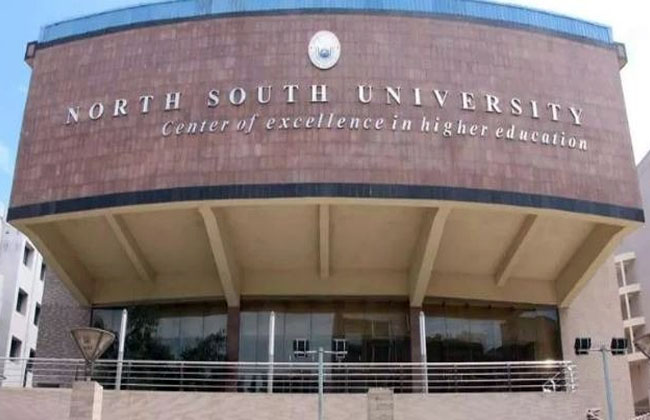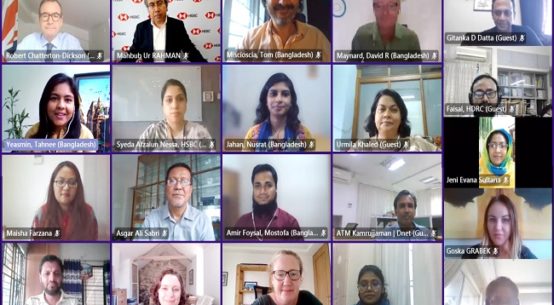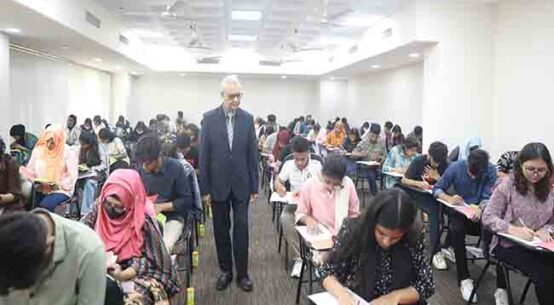
On the third anniversary of the pandemic, not enough has been done to tackle learning poverty i.e. the inability of children to read at the end of primary school. Because of being out of school for an extended period during the pandemic, learning poverty became catastrophic. While school systems reopened, they have placed children back in regular classes without recognizing that cognitively the children are not the same as they might have been two years earlier.
Therefore, a joint statement released by North South University Honorary Fellow Professor Niaz Asadullah and academics from China, Ethiopia, Malaysia, Taiwan, Tunisia, Israel, Switzerland and the USA has expressed deep concerns over inadequate policy response to fight post-pandemic learning loss. The authors are editors of the International Journal of Educational Development.
Their statement is summarized in the commentary paper, ‘A Year of Missed Opportunity: Post-CovidLearningLoss — A Renewed Call toAction’
which reflects onearlier calls for action by prominent global bodies and the subsequent policy response (or the lack thereof) following school reopening.
The paper points out that guidelines for learning recovery have already been developed. But earlier calls for action have seemed to fall on deaf ears of school systems – educational leaders have not listened. Candid admission by educational authorities to admit, calibrate and make up for the learning losses is missing.
The same ‘business as usual’ operations are evident in large and small school systems and at widely disparate levels of economic development. It appears like a tsunami has occurred. The village has been flattened. But educational authorities are allowing classes to reopen with teachers untrained to address the learning losses, with curricula unfocused on learning losses, and without the concentration on learning losses as opposed to the wide range of normal educational objectives. This is especially true for Bangladesh.
Dr. Asadullah, the lead author of the article who is also a full professor at Monash University Malaysia, stresses that “cognitive repair needs to happen before the new school year opens or the losses will be permanent”. Hence this renewed call to action.
There is an urgent need for a universal and coordinated policy response at the national level to assist learners ‘catch up’ in terms of literacy and numeracy skills.
Professor Niaz Asadullah call for greater state-NGO partnership, and increased collaboration between countries in the global south and the global north in terms of knowledge sharing, to accelerate progress towards learning recovery.
The editorial paper ‘A Year of Missed Opportunity: Post-Covid Learning Loss — A Renewed Call to Action’ is published in Science Direct (M Niaz Asadullah, Monash University Malaysia, Malaysia; Donia Smaali Bouhlila, University of Tunis El Manar, Tunisia; Sheng-Ju Chan, National Chung Cheng University, Taiwan; Alexandra Draxler, Graduate Institute of International and Development Studies, Switzerland; Wei Ha, Peking University, China; Stephen P Heyneman, Vanderbilt University, USA; Thomas F. Luschei, Claremont Graduate University, USA; TesfayeSemela, Hawassa University, Ethiopia;and Miri Yemini, Tel Aviv University, Israel).


